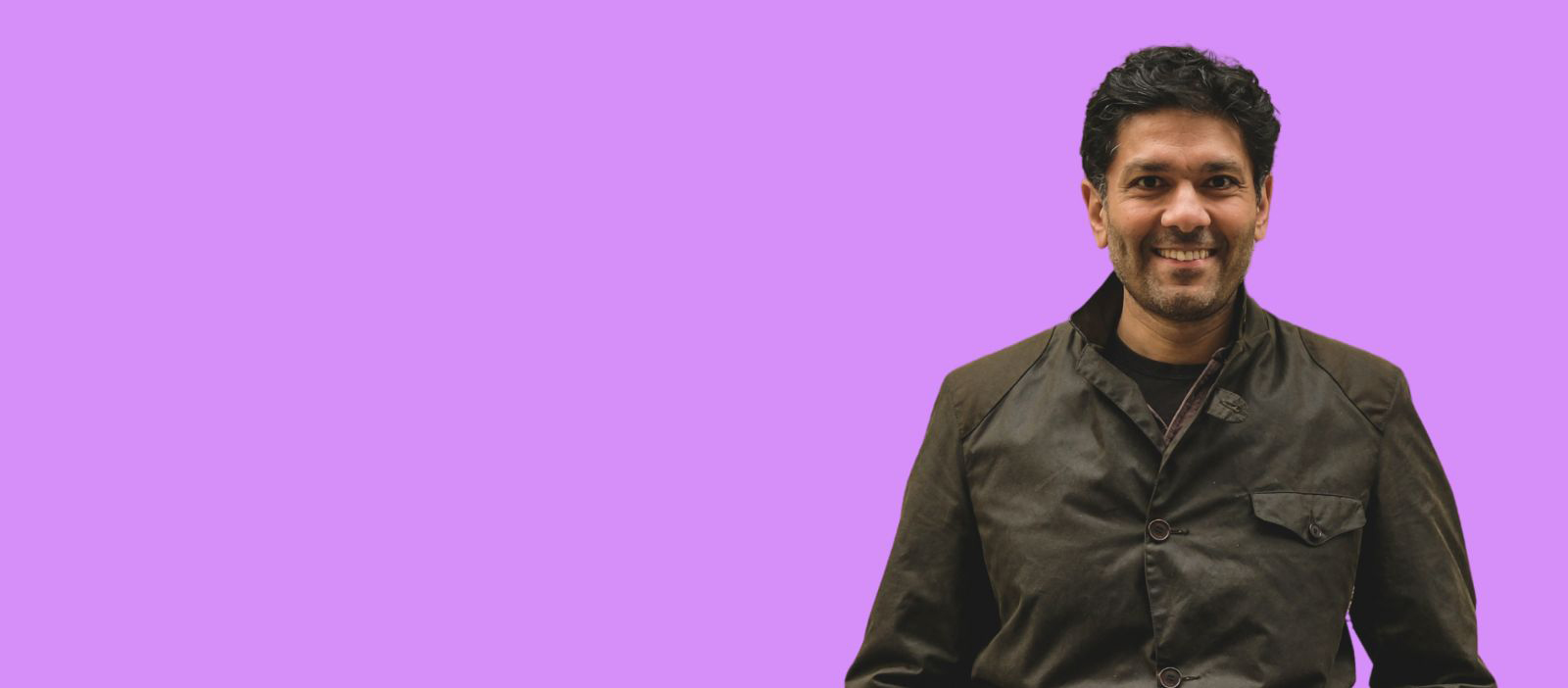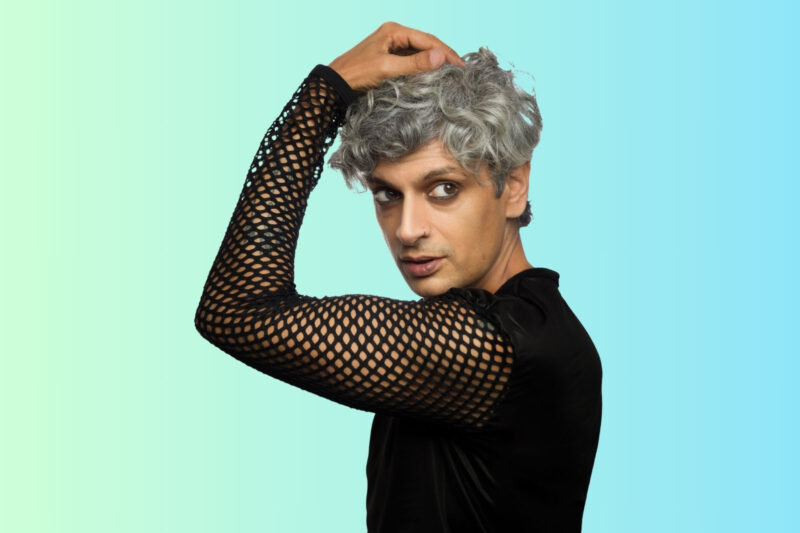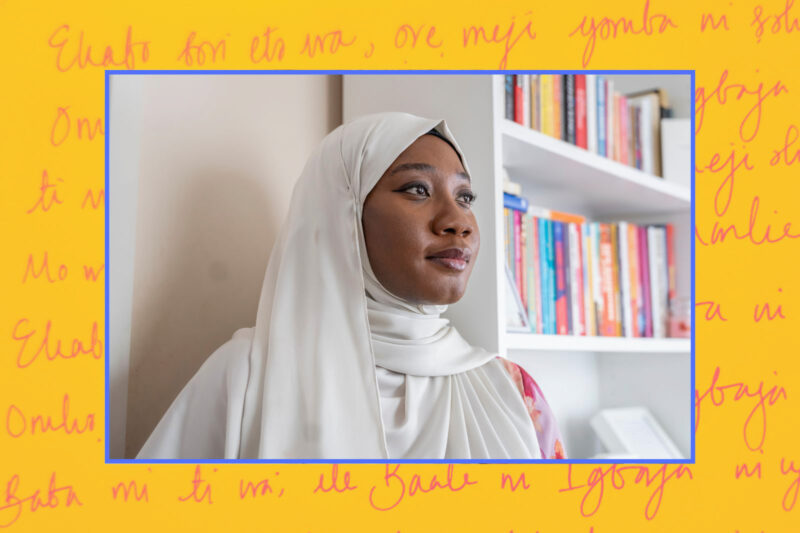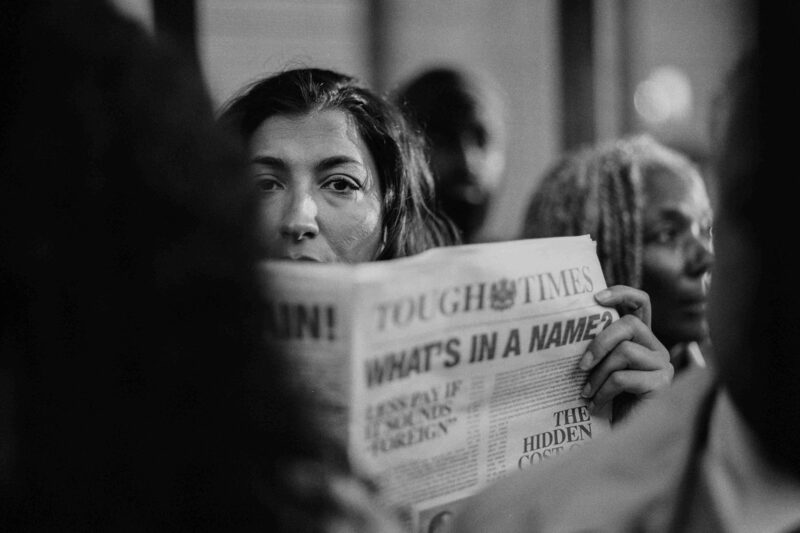
Saqib Qureshi Q&A: ‘I wrote this book for young Muslims in the west who don’t wear their religion on their sleeve’
Qureshi’s latest book, Being Muslim Today, is a modern guide to the Qu’ran that aims to ‘remove the straitjacket of orthodoxy’. Photo courtesy of Saqib Qureshi
With his new book, the author hopes to give readers a fresh perspective on the history of Islam
–
Saqib Qureshi, 50, is an author, investor and entrepreneur whose best-selling books examine the challenges of liberal democracy, Muslim identity and self-improvement.
Qureshi is based between Toronto and London, where he is a fellow at the London School of Economics. His third book, Being Muslim Today: Reclaiming the Faith from Orthodoxy and Islamophobia, retells the history of Islam, and explores how it has been interpreted through the centuries.
Hyphen spoke to Qureshi about the inspiration behind his new book and the impact he hopes to have on the Muslim community.
This interview has been edited for length and clarity.
Your book delves into the history and doctrine of Islam, what do you hope people will take away from it?
Many Muslims worldwide have grown up to see their religion in a very, very narrow interpretation. I wrote this book for young Muslims in the west who don’t necessarily wear their religion on their sleeve, to give them the freedom to really think about their religion. I wanted to remove the straitjacket of orthodoxy by putting some facts out there about what we know, what we don’t know, and what we don’t have much evidence of.
I also wanted to help Muslims tackle Islamophobia. There’s no point in saying that Islam is a religion of peace if you don’t have meaningful information to counter people’s comments. So my approach was to look at Muslims in the modern world, and in a historical sense, and then look at the religion’s core doctrine, and see where it sits on violence.
One of the key themes of the book is the humanising of the prophet Muhammad. Why did you feel that was so important?
I recently had this conversation with a friend of mine who said he didn’t like the way I described the last prophet.
I asked him: “How many people do you know who have had a giggling fit?” He said: “Look, everybody has at some point.” To that I replied: “Now imagine the last prophet doing it.” He said that didn’t “sound right”, and I said: “Why not?”
Why couldn’t our last prophet laugh his head off once in a while? We have dehumanised him, and many people in the community don’t realise it but they have actually effectively ended up worshipping him and the Qur’an.
Were there things that you were surprised to uncover during the writing process?
I knew that Islam was all for gender equality, but that is not the way it has manifested. Muslim women are nearly always pushed into a subordinate role. If you go to mosques in the west today, the vast majority of women’s entrances are pathetic.
The biggest shock to me was the extent of the gender revolution that the last prophet initiated. In the Arabian peninsula in the seventh century, it was not uncommon for women to be treated as assets, like cattle. It was not uncommon for them to be beaten by their husbands without any legal recourse.
For the last prophet to turn around, during a time like that, and say that women are not only equal to men, but we are not going to assign any gender role as to what they should or should not be doing in their lives, was quite remarkable.
Does the book draw on any of your own personal experiences?
This is a book that’s been more than three decades in the making. It began with me trying to make sense of Islam, and moving from a very crude, simplistic understanding of religion, gradually making my way to a more nuanced view.
The universe of Islam that I grew up in didn’t tolerate an awful lot of deep questioning. There were certain things that you just had to accept, and if you didn’t, you were thrown out of the community, and made to feel like an apostate.
I was trying to get to the bottom of what this religion is really about? What do we really know about it, and what do we not know? What’s the basis of our knowledge?
What made you finally write the book?
The pivotal point for me was when my eldest son approached me while I was watching a football game and asked me if Islam was a more violent religion than other religions.
At first I thought he had lost it, and then I realised he was being dead serious. When I went looking for existing material that he could read on the topic, all I could find were PhD-level abstract textbooks, or literature that portrayed everything in Islam and its history as perfect, or as a complete nightmare. That’s why I wrote this book.
Has your son read the book, and if so what did he make of it?
Being brutally honest, he turned around and said to me: “Baba, I read it, but it’s kind of similar to everything you have been saying to me for the last three years anyway.”
How has writing this book changed your view of Islam?
I feel I’ve become a lot more connected to God. I have become much more monotheistic than I was before. I’m much more aware that God exists in everything and everywhere.
Prior to writing this book, I would have said that the Qur’an is a manifestation of God, full stop. And now I say the Qur’an is a manifestation of God as much as the spectacles that I’m currently wearing. That shift in cognition is quite interesting because it extends not only to objects, but people as well. So now my fellow humans are manifestations of God, and they exist because of God’s mercy.
Being Muslim Today: Reclaiming the Faith from Orthodoxy and Islamophobia by Saqib Qureshi is published in the UK by Rowman & Littlefield on 7 July. It is available to pre-order now.
 Newsletter
Newsletter












